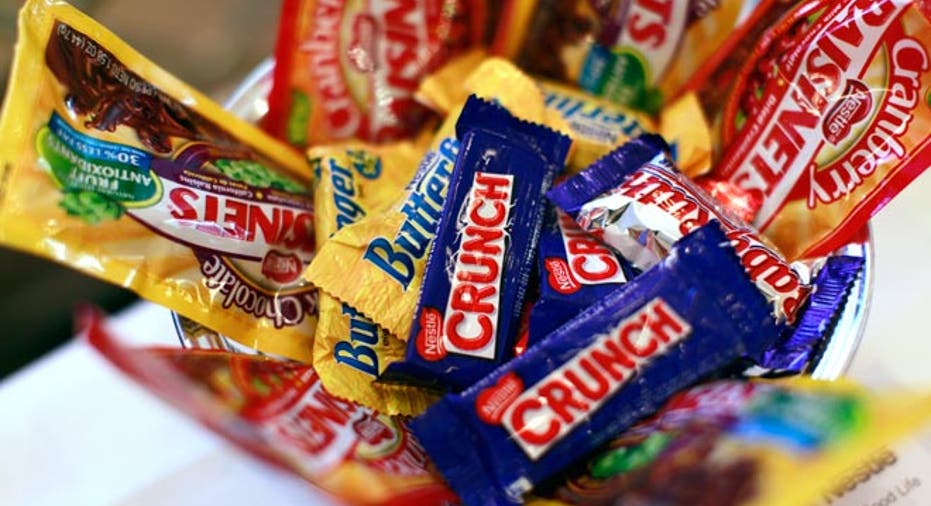Loeb's Third Point takes $3.4b stake in Nestle

Activist investor Daniel Loeb's Third Point on Sunday unveiled a stake of more than 1 percent in Switzerland's Nestle SA and urged the world's largest packaged foods maker to improve margins, buy back stock and shed non-core businesses.
The 3.28 billion Swiss francs ($3.4 billion) stake is the largest ever taken by the hedge fund, which pressed for change in recent years at U.S. internet firm Yahoo and Japan's Sony Corp. It said in a letter posted on its website that it had already had productive conversations with Nestle management.
Nestle shares jumped as much as 4.7 percent on Monday morning, touching a record high as investors hoped for change.
"Nestle has arguably been lackadaisical and complacent and underperformed its potential," Bernstein analysts said. "It might now be stirred into action by an external force."
Third Point disclosed the Nestle position in a letter to the hedge fund's investors, in which it argued the maker of Nescafe coffee and Perrier water should sell its 23 percent stake in French cosmetics firm L'Oreal, which was worth about $27 billion on Friday.
L'Oreal shares rose 2.8 percent.
Nestle did not immediately respond to a request for comment. L'Oreal had no comment.
Nestle is the biggest player in a packaged food industry struggling with a slowdown in emerging markets, falling prices in developed markets and consumers demanding fresher, healthier products.
Mark Schneider, the company's new chief executive, has been trying to reignite growth since joining Nestle in January from German healthcare group Fresenius.
He is the first CEO from outside the company in nearly a century, and his appointment was seen as an acknowledgement that Nestle needed new thinking.
In February, Schneider scrapped Nestle's long-standing sales target, which it had missed for four straight years.
'BOLD ACTION'
"We feel strongly that in order to succeed, Dr. Schneider will need to articulate a decisive and bold action plan that addresses the staid culture and tendency towards incrementalism that has typified the company's prior leadership and resulted in its long-term underperformance," Third Point wrote in the letter.
The hedge fund said Nestle should set a formal profit margin target of 18 percent to 20 percent by 2020 in order to help improve productivity. Nestle's current margin is just above 15 percent, whereas rival Unilever's is over 16 percent.
It also recommended Nestle more than double its debt load, as well as sell the L'Oreal stake, in order to generate the capital to buy back stock.
Vontobel analyst Jean-Philippe Bertschy said Third Point’s suggestions echoed proposals made by other shareholders for years.
"Previous management was not too open to listen to critics," he said. "Now with Mr. Schneider, one of his top priorities was to improve shareholder communication and investor relations. I think he’s listening carefully to what investors are saying."
Bertschy added that much of what Third Point said was probably part of Schneider’s plan going forward.
Third Point's roughly 40 million shares in Nestle would make it the company's eighth-largest shareholder behind the likes of BlackRock, Norges Bank and Capital World Investors, according to Thomson Reuters data. Third Point's stake was first reported by Bloomberg.
Dutch food industry veteran Jan Bennink is advising Third Point on its Nestle investment and has also invested personally alongside the fund, Third Point said. Bennink ran baby food maker Royal Numico when Danone bought it for $16.8 billion in 2007, oversaw the break-up of Sara Lee and ran its coffee business, which is now owned by JAB Holding.
Nestle said this month it might sell its $900 million-a-year U.S. confectionery business in its latest effort to improve the health profile of its sprawling portfolio. Analysts also speculate it could sell its U.S. frozen food business.
Nestle shares were up 4.3 percent at 85.6 Swiss francs at 0820 GMT.
($1 = 0.8928 euros)
(Additional reporting by Parikshit Mishra in Bengaluru; Editing by Andrew Hay, Bill Rigby and Mark Potter)



















